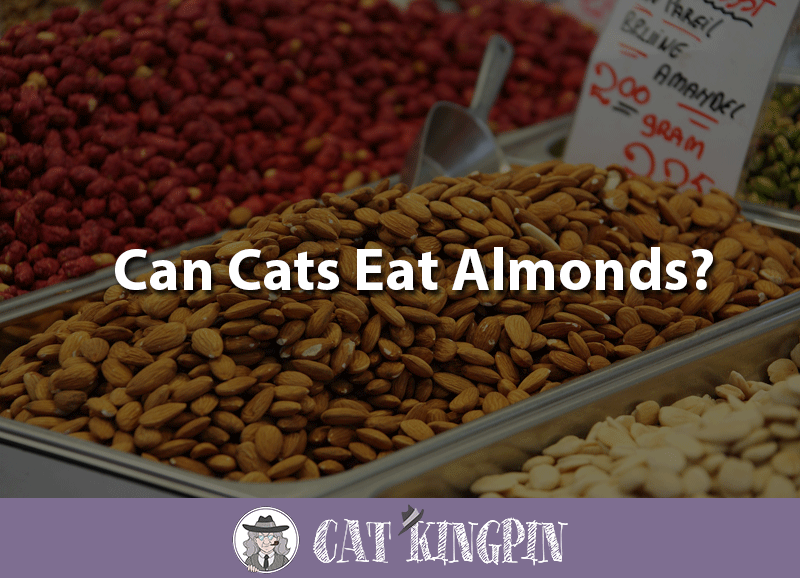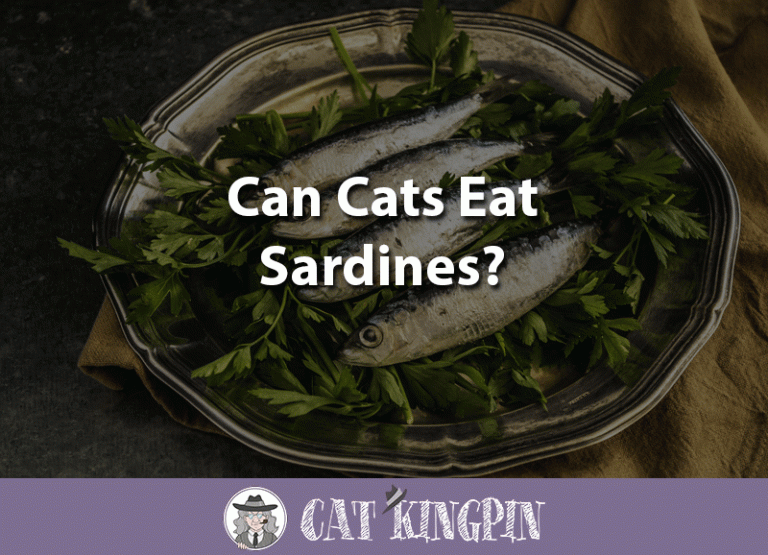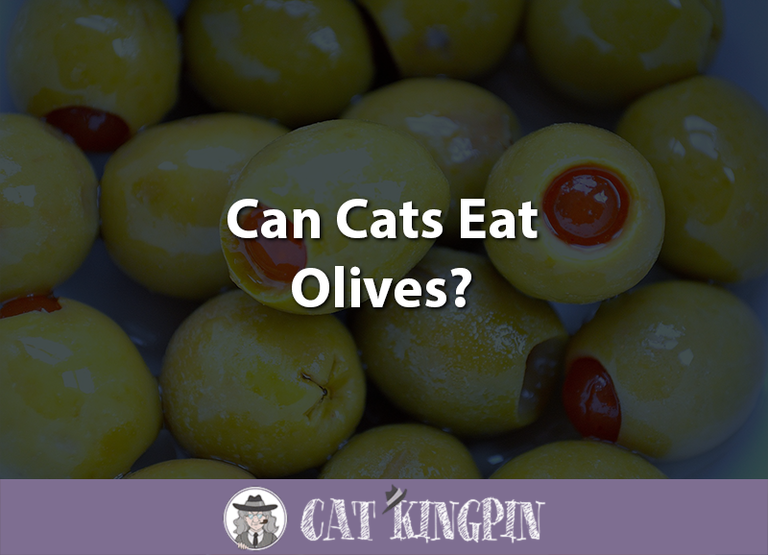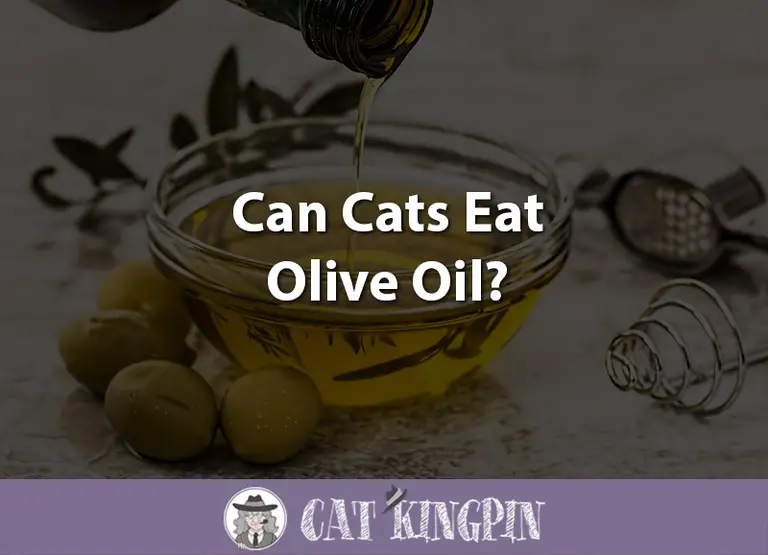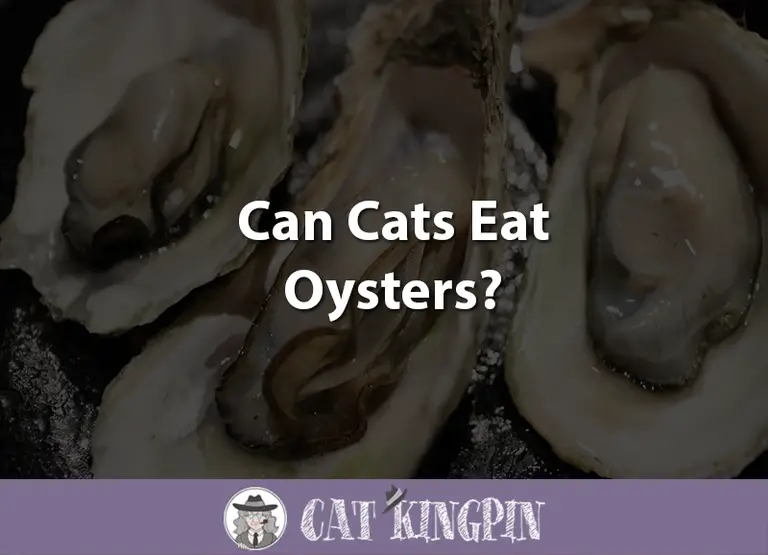Can Cats Eat Almonds?
Do you like almonds? Are you always looking for new, healthy treats you can share with your cat?
You may be wondering if almonds are the answer.
For people, almonds can be a healthy alternative to processed snacks which are often high in saturated fats, sodium, or both.
But are almonds a healthy snack for cats?
You may find this surprising, but almonds really aren’t good for cats to eat. And, in certain circumstances, almonds can even be toxic to cats.
In this article, we’ll cover the following:
- Cats and Almonds- What You Need to Know
- Can Cats Eat Almonds?
- Can Kittens Eat Almonds?
- Benefits/Negatives of Feeding Cats Almonds
- Healthy Alternatives to Almonds for Cats
Cats and Almonds, What You Need to Know
Contrary to popular belief, almonds aren’t actually nuts.
Instead, they are the seeds of the Prunus dulcis tree which was originally domesticated in the Middle East. The domesticated tree is known as the “sweet almond” as opposed to the “bitter almond” which is basically the wild variety.
The distinction between the bitter and sweet almond is important. Much like the pits from cherry trees, which are closely related, bitter almonds contains measurable levels of the poison, cyanide.
In recent times, bitter almonds are relatively rare on the consumer market, although bitter almond oils can still be found in some health food stores.
Under no circumstances should you ever give your kitty bitter almonds or bitter almond oil as these can be deadly poisons to your cat or kitten!
The reality is that most cats are not interested in eating almonds, though they might find almonds fun to play with.
Even if they don’t like almonds, as this video shows, cats sure aren’t going to let the family dog have one:
Can Cats Eat Almonds?
Almonds are pretty healthy for humans. This is because almonds are considered a nutritionally dense food, containing loads of vitamins, minerals, fiber and healthy fats.
But it is important to remember that cats’ digestive systems are much different than ours and they process foods much differently than people.
First, cats are obligate carnivores, which means all they really need to eat is meat. In fact, cats are very poor at deriving nutrition from foods that aren’t meat.
For example, cats don’t need fiber in their diet, and foods with fiber can have a laxative effect on cats.
Cats also don’t need to worry as much about the types of fat they eat because cats process fat differently than humans. Cats can enjoy a diet proportionately higher in lipids, including saturated fats, without any negative effects.
The main problem with cats eating a high-fat diet is they could become overweight.
Can Kittens Eat Almonds?
Kittens tend to be even more sensitive to things than adult cats because kittens are tiny and their bodies have not yet fully developed.
For this reason, kittens should never be given almonds.
While the amount of cyanide in sweet almonds is very small, it doesn’t take a whole lot of cyanide to effect a kitten.
Why take the chance?
Additionally, almonds present a choking hazard. Kittens do not have as much experience with different food items and may try to swallow the almond whole. It is simply too dangerous to give kittens almonds.
Benefits/Negatives of Feeding Cats Almonds
Since cats derive the vast majority of their nutrition from eating meat, there is very little benefit for cats to eat almonds. If your cat gets too much fiber from eating too many almonds, they could have indigestion and loose stools.
Further, some almonds contain cyanide which could poison your cat. The highest levels of cyanide are found in bitter almonds and bitter almond oil and syrups. Symptoms of cyanide poisoning include:
- dilated pupils
- difficulty breathing
- bright red gums
- shock
- death
If your cat has eaten bitter almonds, or especially bitter almond oil, and is showing signs of poisoning, contact poison control and take them to your vet immediately!
Healthy Alternatives to Almonds for Cats
If your cat does seem infatuated with almonds, how about giving them a cat food that looks just like almonds, but is healthy for them?
And, if you just love the taste of almonds and must share that enjoyment with your adult kitty, consider giving them just a small taste of almond milk from time to time.
So, Can Cats Eat Almonds?
Your adult cat is probably fine to eat very small amounts of sweet almonds or have a few tastes of almond milk. Most of the time, cats will likely just view almonds as a toy to bat around.
But, if you can’t keep your cat away from the almonds, here are a few tips that might help:
- Buy an almond-shaped cat food and give a few kibbles in place of the real almonds. There is a good chance they won’t even know the difference.
- Keep your almonds in a closed drawer or cabinet.
- If your cat does manage to eat some almonds, keep an eye out for the symptoms of cyanide poison: dilated pupils, difficulty breathing, bright red gums or shock. If your cat starts showing any of these symptoms, contact animal poison control and take them to your veterinarian immediately!
If you have any questions or would like to share a story about your cat and a healthy snack they really enjoy, please tell us in the comments below, we’d love to hear from you.

